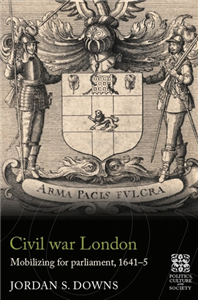Description
More Information
Rights Information
Albania, Algeria, Angola, Argentina, Armenia, Australia, Austria, Bahrain, Belgium, Belize, Benin, Bolivia, Bosnia and Herzegovina, Botswana, Brazil, Bulgaria, Burkina Faso, Burundi, Cameroon, Canada, Cape Verde, Central African Republic, Chad, Chile, China, Colombia, Comoros, Congo [DRC], Congo, Republic of the, Costa Rica, Ivory Coast, Croatia, Czech Republic, Denmark, Djibouti, Ecuador, Egypt, El Salvador, Equatorial Guinea, Eritrea, Estonia, Ethiopia, Faroe Islands, Finland, France, French Guiana, Gabon, Gambia, Georgia, Germany, Ghana, Greece, Guatemala, Guinea, Guinea-Bissau, Guyana, Honduras, Hongkong, Hungary, Iceland, India, Indonesia, Iran, Iraq, Ireland, Israel, Italy, Japan, Jordan, Kazakhstan, Kenya, Kuwait, Latvia, Lebanon, Lesotho, Liberia, Libya, Lithuania, Luxembourg, Macau, China, Macedonia [FYROM], Madagascar, Malawi, Malaysia, Mali, Malta, Mauritania, Mauritius, Mayotte, Mexico, Mongolia, Montenegro, Morocco, Mozambique, Namibia, Netherlands, New Zealand, Nicaragua, Niger, Nigeria, Norway, Oman, Pakistan, Panama, Paraguay, Peru, Philippines, Poland, Portugal, Puerto Rico, Qatar, Reunion, Romania, Russia, Rwanda, Saint Helena, Sao Tome and Principe, Saudi Arabia, Senegal, Serbia, Seychelles, Sierra Leone, Singapore, Slovakia, Slovenia, Somalia, South Africa, South Korea, Spain, Sri Lanka, Sudan, Suriname, Swaziland, Sweden, Switzerland, Syria, Taiwan, Tanzania, Thailand, Timor-Leste, Togo, Tokelau, Tunisia, Turkey, Uganda, Ukraine, United Arab Emirates, United Kingdom, United States, Uruguay, Venezuela, Vietnam, Western Sahara, Yemen, Zambia, Zimbabwe, South Sudan, Cyprus, Palestine, Bangladesh, Cambodia, Liechtenstein, Azerbaijan, Jamaica, Kyrgyzstan
Endorsements
London's alignment with parliament in the English civil war was never a foregone conclusion. Though historians have long identified the City as a stronghold for parliament, it could scarcely be called 'parliamentarian'. So how and why did the largely conservative City provide much of the financial and military support needed to wage an effective war against Charles I? For the first time, Civil war London reveals the dynamics of London's support for parliament. It investigates the series of episodic, circumstantial, and ultimately unique mobilizations that allowed war to be maintained from the outbreak of the Irish rebellion in late 1641 through to the establishment of the New Model Army in early 1645. Based on research from two-dozen archives, the book charts the successes and failures of London's financial and military mobilizations and countermobilizations, challenging longstanding notions about the wartime capital. Revealed in the process are interactions between London's Corporation, parochial communities, and livery companies, between preachers and parishioners, and between agitators, propagandists, and common people. Within these tangled webs of political engagement lie the untold stories of the movement of money and men, but also of parliament's eventual success in the English civil war.
Reviews
London's alignment with parliament in the English civil war was never a foregone conclusion. Though historians have long identified the City as a stronghold for parliament, it could scarcely be called 'parliamentarian'. So how and why did the largely conservative City provide much of the financial and military support needed to wage an effective war against Charles I? For the first time, Civil war London reveals the dynamics of London's support for parliament. It investigates the series of episodic, circumstantial, and ultimately unique mobilizations that allowed war to be maintained from the outbreak of the Irish rebellion in late 1641 through to the establishment of the New Model Army in early 1645. Based on research from two-dozen archives, the book charts the successes and failures of London's financial and military mobilizations and countermobilizations, challenging longstanding notions about the wartime capital. Revealed in the process are interactions between London's Corporation, parochial communities, and livery companies, between preachers and parishioners, and between agitators, propagandists, and common people. Within these tangled webs of political engagement lie the untold stories of the movement of money and men, but also of parliament's eventual success in the English civil war.
Author Biography
Jordan S. Downs is Lecturer in History at University of California, Riverside
Manchester University Press
Manchester University Press is a leading UK publisher known for excellent research in the humanities and social sciences.
View all titlesBibliographic Information
- Publisher Manchester University Press
- Publication Date September 2023
- Orginal LanguageEnglish
- ISBN/Identifier 9781526174444 / 1526174448
- Publication Country or regionUnited Kingdom
- FormatPrint PDF
- Pages344
- ReadershipGeneral/trade; College/higher education; Professional and scholarly
- Publish StatusPublished
- Dimensions234 X 156 mm
- Biblio NotesDerived from Proprietary 5108
- SeriesPolitics, Culture and Society in Early Modern Britain
- Reference Code15943
Manchester University Press has chosen to review this offer before it proceeds.
You will receive an email update that will bring you back to complete the process.
You can also check the status in the My Offers area

Please wait while the payment is being prepared.
Do not close this window.



